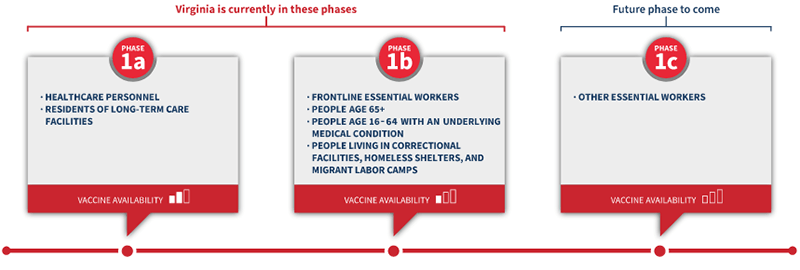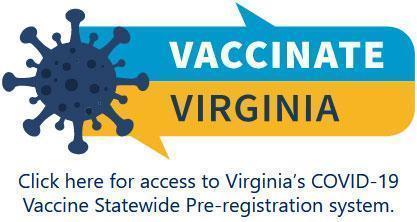The world is facing an unprecedented convergence of crises as the COVID-19 pandemic is compounding existing health, economic and environmental problems. Experts are weighing in on what the pandemic can teach us about climate change and how we can use this crisis to learn, adapt, and come out more resilient on the other side. Below are links to timely articles and information.
Parallel threats of COVID-19, climate change, require ‘brave, visionary and collaborative leadership’: UN chief
by Antonio Guterres, UN Secretary General
To combat the COVID-19 pandemic and the “looming existential threat of climate disruption”, the only credible response is “brave, visionary and collaborative leadership” anchored in mutilateralism, as elaborated by the UN Secretary General António Guterres. (UN News)
Actions for a climate-positive recovery — Antonio Guterres, UN Secretary General
- Deliver new jobs and businesses through a green and just transition while accelerating the decarbonization of all aspects of the economy.
- Use taxpayers’ money to create green jobs and inclusive growth when rescuing businesses.
- Shift economies from grey to green, with using public financing that makes societies more resilient.
- Invest public funds in the future, to projects that help the environment and climate.
- Consider risks and opportunities for your own economy, as the global financial system works to shape policy and infrastructure.
- Work together as an international community to combat COVID-19 and climate change.
COVID-19 VACCINATION RESPONSE EMERGENCY PREPAREDNESS ENVIRONMENT & HEALTH FOOD SECURITY POVERTY & ENVIRONMENTAL JUSTICE RECOVERY, ECONOMICS, & INFRASTRUCTURE VIDEOS
Please note: Annette Osso, Managing Director and Tracy Garland, Social Media and Events Director, continue to work virtually and are busy making plans for 2021 events, including the second Resilient Virginia Academy and the 2021 Resilient Virginia Conference, as well as posting resources and information through social media and our newsletter.
COVID-19 Vaccination Response
Information from the Virginia Department of Health
VDH Provides Answers to Two Big Questions: Am I eligible and where do I get a vaccine?
Now that the COVID-19 vaccines are being rolled out across Virginia, it can be confusing to find information on your eligibility, how to get an appointment, and where to get the vaccines. The Virginia Department of Health has assembled an array of information, that is being updated regularly, and an informative dashboard of statewide activity.
What eligibility phase is Virginia currently in:

As of February 8, 2021 all Health Districts around the state are vaccinating people in 1a and 1b categories. Find out the details of who in 1b categories are being prioritized by checking out the Health District map here.
You can also directly go to an online form to assess your eligibility here. Or see written information about eligibility here.
How to get an appointment and where to get a vaccination:
As of February 16, 2021, the state has set up one portal for you to sign up to pre-register and get on a wait list for a vaccine appointment.
In addition, your local Health District may also have vaccination clinic locations listed, and — if you need to be tested for COVID-19 — they also have information on test sites. Health Districts may also have a COVID-related phone number and people who will help answer your questions. See the Health District map here to find your local Health District.
Finally, see the VDH Dashboards that show total number of COVID cases, numbers of people tested, and numbers of people vaccinated over time here.
And remember the basics:

Find out much more, including Spanish-language information, on COVID-19 testing and vaccinations at the VDH website.
Emergency Preparedness
Be prepared: Key lessons from the coronavirus pandemic and climate change
by Nathanael Johnson, Grist
World Resources Institute and the Global Center of Adaptation’s report, Adapt Now, strives to focus awareness about the need to prepare, despite high costs, for the climate crises. This article ties together the growing realization that government refusal to address the immediate pandemic crises only makes the argument for climate disruption preparation seem “blindingly obvious.”
Coronavirus shows we are not at all prepared for the security threat of climate change
by Kate Guy, Senior Research Fellow, Center for Climate and Security
How might a single threat, even one deemed unlikely, spiral into an evolving global crisis which challenges the foundations of global security, economic stability and democratic governance, all in the matter of a few weeks? The author worked with security experts to analyze how future warming scenarios could disrupt security and governance worldwide throughout the 21st century. Their culminating report is A Security Threat Assessment of Global Climate Change.
What Happens If a ‘Big One’ Strikes During the Pandemic?
by Robin George Andrews, The Atlantic
Hundreds of preexisting plans deal with individual natural-disaster scenarios. But these plans haven’t accounted for COVID-19 happening at the same time.
Environment and Health
Q&A: Could climate change and biodiversity loss raise the risk of pandemics?
by Carbon Brief
The study of the “spillover” of disease from animals to humans has received renewed focus in light of the pandemic.
Coronavirus, the environment, and you: Coronavirus explained
by Gwen Ranniger, Environmental Health News
The Covid-19 pandemic is exacerbated by climate change, the environment and our lifestyles.
New research links air pollution to higher coronavirus death rates
by Lisa Friedman, The New York Times
A study from Harvard University T.H. Chan School of Public Health is “part of a small but growing body of research that offers a view into how a lifetime of breathing dirtier air can make people more susceptible to the coronavirus.”
Coronavirus, climate change, and the environment
by Environmental Health News staff
A conversation on COVID-19 with Dr. Aaron Bernstein, the director of Harvard University’s Center of Climate, Health and the Global Environment.
Next UN climate science report to consider lessons from coronavirus
by Alister Doyle, Climate Change News
Scientists are studying how far human pressures on the natural world are raising risks of pandemics. They will weave lessons from the coronavirus outbreak into the next UN climate science report, even as their work is delayed by lockdowns. The UN climate science report for policymakers is due out in 2021.
Food Security
Dumped milk, smashed eggs, plowed vegetables: Food waste of the pandemic
by David Yaffe-Bellany and Michael Corkery, The New York Times
The coronavirus pandemic is highlighting the complexity of our food supply chain and its inability to adapt. Increasing numbers of people are facing food insecurity while 5% of the country’s milk supplies are being dumped and crops are being plowed back into the soil.
As supermarkets feel hazardous and sparse, small farms deliver
by Tejal Rao, The New York Times
Local and regionalized food supply chains are proving more resilient — able to adapt to new market pathways and customer needs in the face of the pandemic’s economic disruption.
Poverty and Environmental Justice
Three ways the Coronavirus is shaping sustainable development
by Richard Florizone, IISD
The COVID-19 pandemic is first and foremost a humanitarian crisis. Efforts to contain the virus and support those directly impacted are of utmost importance.
Climate change: Lessons from the COVID-19 pandemic, a blog
by Dr. Aparna Bole, pediatrician and Health Care Without Harm Board Chair
One of the valuable lessons from the fight against COVID-19 has been how we can take collective action to respond to a crisis. The lessons of COVID-19 also show us our current social structures are unsustainable. “We can remember from the tragic inequities being underscored by this pandemic that equity and justice must be the foundation of global climate action.”
Opinion: Think this pandemic is bad? We have another crisis coming
by Rhiana Gunn-Wright, Director of Climate Policy, Roosevelt Institute
This opinion piece by Rhiana Gunn-Wright, director of climate policy at the Roosevelt Institute, argues that addressing climate change and environmental justice will not diffuse efforts to address the economic fallout from COVID.
Q&A: Richard Besser, Philanthropic leader and former head of the CDC
The Daily Yonder
As states reopen their economies, we need to pay careful attention to what happens to rural areas and other marginalized communities, where lack of health care access, poverty, immigration status, racial discrimination, lack of safe housing, and food insecurity result in great disparity over how communities can respond.
The government should bail out families, not the fossil fuel industry
a blog by Gary Cohen, Health Care Without Harm founder
Cohen shares, “the coronavirus pandemic may yet serve as an example of how we leveraged a crisis to scale up our own social safety net and build community resilience.” He calls for the government to prioritize support for working-class families instead of committing taxpayer funding to toxic industries like oil and gas that harm the public and the planet.
Recovery, Economics, and Infrastructure
Resilient Recovery: Using climate adaptation plans to build back better
by Anne Hammill, International Institute for Sustainable Development
Though focused on climate change, National Adaptation Plans (NAPs) offer important assessments of the risks a country faces and can be valuable in devising more comprehensive pandemic response strategies.
COVID-19 and Climate: Risk, Mitigation, and Resilience
by Ned Harvey, Tyeler Matsuo, and Christian Roselund, Rocky Mountain Institute
When a disaster strikes, there is a tendency to see it as unique and unforeseeable; a deviation from the standard order of things. Even the legal language around so-called “natural” disasters references “acts of God”. And yet, even if we do not know when they will come or in what form, in the early 21st century there is nothing more predictable than disasters.
Build sustainable infrastructure and create clean jobs for a resilient future
by Bill Weihl, Opinion Contributor, The Hill
We don’t need an old-school boondoggle infrastructure bill. We need future-focused legislation to build sustainable infrastructure and create clean jobs to begin to bend the curve of carbon emissions.
After the Coronavirus, Two Sharply Divergent Paths on Climate
by Fred Pearce, Yale Environment360
Some policy experts are optimistic that victory over the coronavirus will instill greater appreciation for what government, science, and business can do to tackle climate change. But others believe the economic damage caused by the virus will set back climate efforts for years to come.
Resilient Cities Catalyst Launches COVID-19 Resource Series with National Roadmap for Economic Resilience
by Resilient Cities Catalyst, CSRWire
Resources provide expert thinking as cities and communities pivot from recovery to resilience in the wake of COVID-19’s economic, health, and infrastructure impacts.
5 lessons from coronavirus that will help us tackle climate change
by Christiana Figueres, Time Magazine
Christiana Figueres, former U.N. secretary of the U.N. framework convention on climate change, discusses the similarities and differences between climate change and coronavirus in hopes to better position us towards less expensive prevention-based solutions for the future. If our next decisions to restart the economy take into account that global challenges have no borders and we are only as safe as our vulnerable people, “political and financial leaders now have an unprecedented historical opportunity to accelerate the energy transition putting us onto a safe path toward.”
Innovating to Solve Two Crises at Once
by Cyril Yee and Bryan Guido Hassin, RMI
By applying lessons learned from the 2008 cleantech collapse, we can address this pandemic while also supporting innovation to tackle climate change.
Videos
What coronavirus could teach us about the climate crisis
CNN’s Bill Weir looks at the parallels between coronavirus and the climate crisis.





